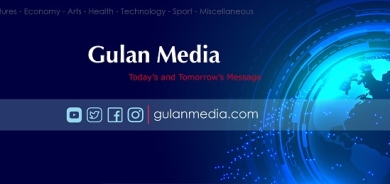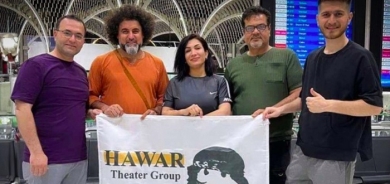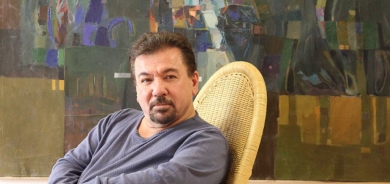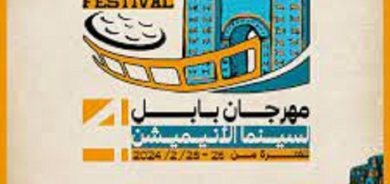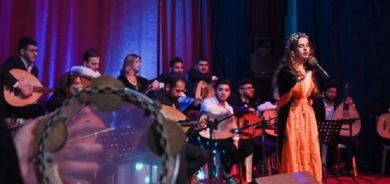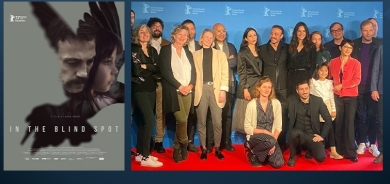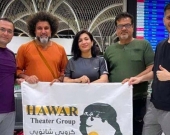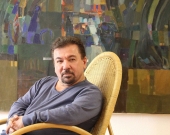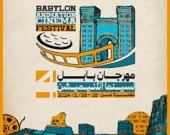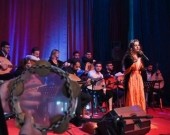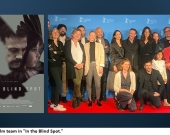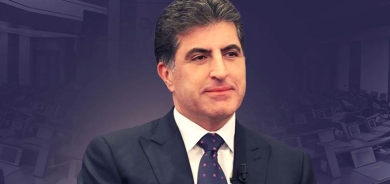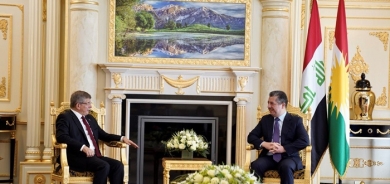The New Voice of Kurdistan

In March, a pop star called Helly Luv performed in the capital of Iraqi Kurdistan. My colleague Cyrus Moussavi and I followed her during the days leading up to the concert, as she careered around the dusty, chaotic streets of Erbil, all killer heels and flashing fingernails, sound checking, organizing pyrotechnics and occasionally losing her temper.
Helly was going to be a main character in the latest episode of Raw Music International, our collaborative project aimed at telling cultural stories from around the world through music and the people who make it. Helly seemed like a potent symbol of some of the things that were happening in Kurdistan at the time – a fast, sometimes glitzy but always chaotic development. After several weeks spent in the backstreets of the bazaar with Iraj, an Iranian Kurd candy vendor with a glorious voice, we managed to persuade Helly to let us follow her.
Helly, originally Hellen Abdullah, was born in Iranian Kurdistan in 1988, the year that Saddam gassed thousands of Kurds in the attacks on Halabja. Escaping the Iran-Iraq war, her parents smuggled Hellen from Iran through Iraq and into Turkey when she was nine months old. She turned two in a Turkish refugee camp before the family was granted asylum in Finland.
At the age of 18, Helly left Finland and went to LA to become a pop star. It didn’t go so smoothly. Various low-level producers unsuccessfully attempted to mold her into another anodyne, vaguely sexy pop singer. “I really, really crashed so hard,” she told us during an interview at the five-star Divan hotel in Erbil. Eventually though, producer Gawain Bracy II (partly responsible for the existence of the Pussycat Dolls) noticed her and saw an opportunity.
Helly recorded her first music video, draped in Kurdish flags and long-standing iconography such as the traditional Peshmerga outfit, in Erbil. In it, she cavorts with lions and throws a molotov cocktail–and doesn’t wear an awful lot doing it. When it came out, the video caused controversy in conservative Kurdistan, even drawing a couple of death threats.
Nonetheless, she was invited by the slightly murky figures in charge of the city to perform in Erbil during Newroz, the Kurdish and Persian new year. It’s a huge celebration. Think Christmas but with everybody out on the streets instead of sitting at home.
When we first met Helly, she came across as simultaneously confident, energized, girlish and unsure. She wore a lot of makeup and her tattoos, leather trousers and rather constructed sex appeal seemed incongruous against the background of stir-crazy oil execs trundling to and from the bar of the Divan hotel.
Her very obvious personal ambition however, fit well in pre-ISIS Kurdistan. Before June, Kurdistan was the only part of Iraq that looked like it had a future. While the rest of the country was quietly coming to the boil, the Kurds were tapping more oil, buying more cars and building more hotels, seemingly on the way to creating a nation.
It remains to be seen whether there’ll still be a space for Helly and her entourage (her mother, her producer, shady security guys, dancers from Finland, dancers from Syria, assorted childhood friends, makeup artists and hangers-on) after the rise of the Islamic State and the collapse of Iraq. But one thing is for sure: she won’t go down without a fight. Less than a month after ISIS took over the city of Mosul this summer, she was posing for photographs with Peshmerga troops at a base nearby. Referencing her song title, she told Reuters she would “Risk It All” to help a push for an independent Kurdistan.
Roads and Kingdoms

